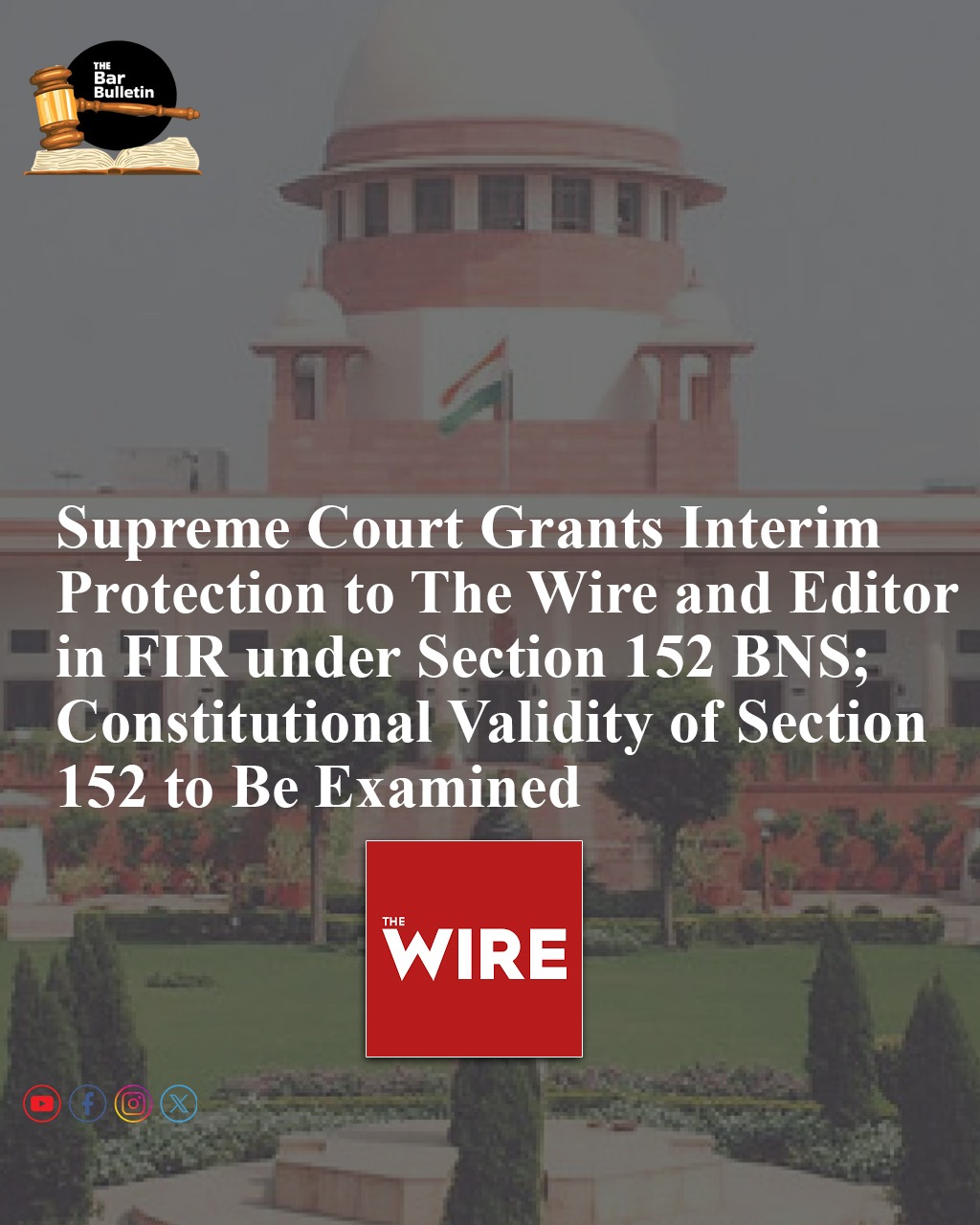The Supreme Court of India granted interim protection to The Wire and its founding editor from any coercive action in connection with an FIR registered by Assam Police under Section 152 of the Bharatiya Nyaya Sanhita (BNS). The case arises from The Wire’s investigation and reporting on “Operation Sindoor”, which highlighted alleged police excesses in Assam.
The petitioners challenged not just the FIR but also the constitutional vires of Section 152 BNS, the new penal provision replacing sedition (IPC Section 124A) and broadly criminalizing speech deemed prejudicial to national unity or public order.
The Bench comprising Justice Surya Kant and Justice Joymalya Bagchi, noting that the constitutionality of Section 152 BNS is already under challenge in S.G. Vombatkere v. Union of India[1], ordered both cases to be tagged and fixed for comprehensive hearing on 7 October 2025.
The Court’s order dated 12 August 2025 specifically protects The Wire, its parent trust ‘Foundation for Independent Journalism’, and the founding editor, Siddharth Varadarajan, from coercive steps pursuant to the FIR filed against them by the Assam Police, meaning that they are to cooperate with the investigation if required, but cannot be arrested or subjected to custodial or punitive measures until further orders.
During the hearing, the bench raised foundational questions about the criminalization of journalistic activity, observing that neither the article nor the video published by The Wire appeared, even on their face, to be seditious. The Supreme Court questioned whether journalists should face prosecution for performing their professional duty, cautioning that liberal invocation of such laws poses a chilling effect on the ability of the press to hold authorities to account and inform citizens on issues of public interest.
This case is being closely watched as the first significant constitutional challenge to Section 152 BNS and its use against the media. Legal experts, editors’ guilds and press freedom groups have hailed the Supreme Court’s intervention, emphasizing its role in upholding constitutional rights amid concerns over broad and vague legal provisions that risk stifling critical or investigative reportage.
[1] W.P.(C) No. 720/2025



